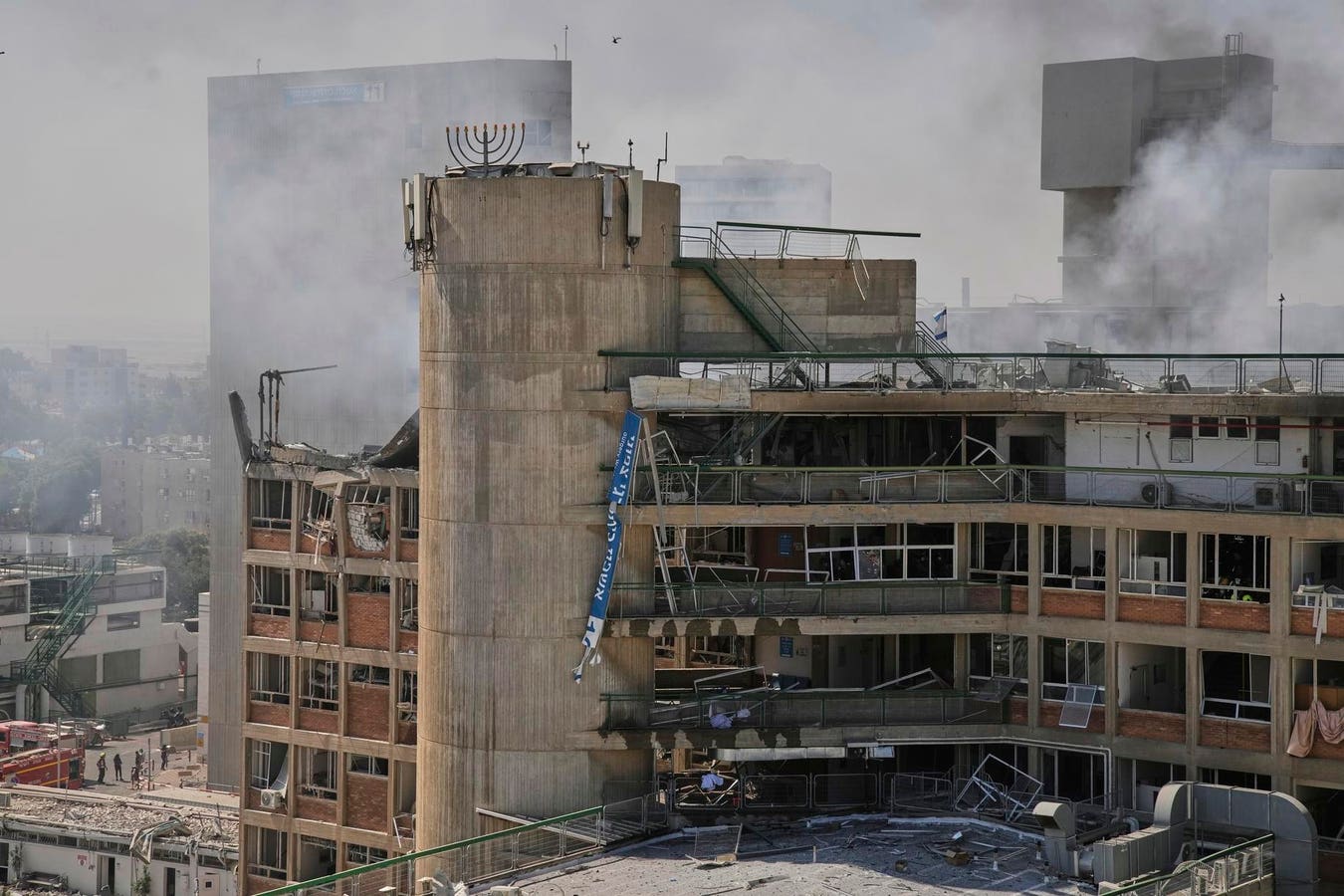Israeli officials announced on Thursday their intent to escalate military strikes against “strategic targets” in Iran following a series of missile attacks that injured numerous individuals across Israel and damaged a hospital. This intensification of conflict comes as President Donald Trump leaves open the possibility of U.S. military action against Iran’s nuclear installations.
Smoke billowed from the Soroka hospital complex in Be’er Sheva, Israel, after being struck by an Iranian missile, marking a significant escalation in hostilities. Despite the attack causing extensive damage, no serious injuries were reported.
Tom Barrack, the U.S. Ambassador to Turkey and Special Envoy for Syria, cautioned the Iran-supported Hezbollah against entering the conflict. After Hezbollah criticized Israel’s strikes, Barrack stated, “I can say on behalf of President Trump, which he has been very clear in expressing as has Special Envoy Witkoff: that would be a very, very, very bad decision.”
The missile strike aimed at what Iranian state media identified as a “vast command and intelligence base” connected to the Israeli military’s tech and communications unit. The Soroka Medical Center is situated less than two miles from this military intelligence campus.
In response to the recent attacks, Israeli Defense Minister Israel Katz and Prime Minister Benjamin Netanyahu directed the military to intensify strikes on Iran, labeling Iranian Supreme Leader Ayatollah Ali Khamenei as the perpetrator of “gravest of war crimes.” Katz criticized Khamenei, saying, “The cowardly Iranian dictator sits in the depths of the fortified bunker and fires aimed shots at hospitals and residential buildings in Israel.”
A total of 65 individuals sustained injuries in the recent missile bombardments from Iran. As a precautionary measure, the U.S. State Department began evacuating nonessential diplomats, which was reported to be at the government’s expense. Some embassy personnel were flown out of Israel on U.S. military aircraft; however, a full evacuation of the embassy was not mandated, and staff and their families were not required to leave.
The Iranian Mission to the U.N. responded to Trump’s remarks about possible U.S. strikes, asserting that “no Iranian official has ever asked to grovel at the gates of the White House.” Trump remarked on a press inquiry regarding U.S. action towards Iran, stating, “You don’t seriously think I’m going to answer that question… I may do it, I may not do it; nobody knows what I’m going to do.”
Further commenting on the diplomatic fallout, Trump mentioned, “It’s very late to be talking… there’s a big difference between now and a week ago,” referring to Iran’s refusal to negotiate a deal aimed at limiting its nuclear ambitions. He added that the goal remained clear, declaring, “I only want one thing: Iran cannot have a nuclear weapon.”
The situation escalated further as both Israel and Iran engaged in aerial attacks. Reports indicated that Iran has launched over 400 missiles and hundreds of drones in this conflict, which has quickly escalated since its inception last week. Earlier, Trump had issued a stark warning to residents of Tehran to evacuate, emphasizing the potential for further military action.
Iran’s Supreme Leader declared that the country would not capitulate to external pressures and warned that any U.S. involvement in the ongoing Israel-Iran conflict could lead to “serious irreparable harm.”
Trump’s firm stance was evident as he reiterated his demand for Iran’s “unconditional surrender” and warned against any assaults on U.S. assets, stating consequences would be severe.
In a previous post, Trump claimed, “We now have complete and total control of the skies over Iran… Nobody does it better than the good ol’ USA.” He dismissed suggestions from international leaders regarding ceasefire talks and indicated that he sought a definitive end to Iran’s nuclear program rather than just a temporary halt.
As tensions within the region continue to simmer, Iran’s foreign minister has expressed a willingness to return to diplomatic discussions, contingent upon halting Israeli aggression against Iran. In an online post, he asserted, “It takes one phone call from Washington to muzzle someone like Netanyahu. That may pave the way for a return to diplomacy.”

